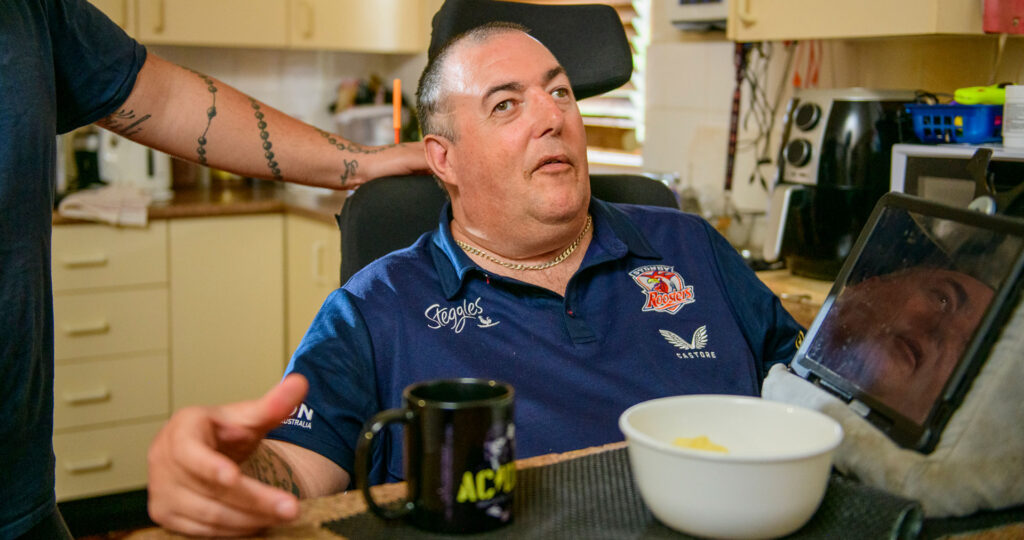Deciding what to cook every day is a task for most of us. But when providing care for someone with an illness, injury or disability it can be even more challenging. And when good nutrition is key to recovery and wellbeing, the need to prepare wholesome and nutritious meals becomes even more significant.
We’ve compiled some tips, ideas and advice when preparing meals and snacks for a person receiving care.
Consider their unique requirements
Not everyone with care needs is able to enjoy a full range of foods. In fact, some patients require feeding tubes, which is an entirely different – and highly specialised area – of care. This advice is not suitable for patients in such situations, and if you are providing nutrition for a patient with a feeding tube, you will require specialist advice. However, in any care situation there will be requirements you need to consider – such as complications with medication, digestion issues, or for patients with colostomy care needs there may be specific foods they cannot eat. Being aware of these requirements is key to ensuring patients receive not only wholesome food, but food that is appropriate for their care needs or limitations.
In addition, people receiving care will have food preferences and things they prefer to eat or not eat, and that’s fine. Work with them to understand preferences,, and you will be sure to create meals and snacks that are both wholesome and satisfying.
Plan ahead
Fail to plan, plan to fail. It only takes a little bit of thought and forward planning to create healthy meals. Be that a weekly meal plan, a list when you go to the supermarket, or pre-cooking and freezing healthy meals for those days when you’re short on time and energy. When you plan ahead with healthy choices in mind there is less risk of reaching for those fast, processed or unhealthy meals and snacks. The health of the person you are caring for is your number one priority, and nutrition plays a big role in overall health – regardless of any other conditions they may be living with.
Snack well
A healthy snack can be as simple as a smoothie – think banana added to other fruit, water, milk or yoghurt in the blender. Adding fruit and vegetables to the diet in a palatable way means you’re getting all the fibre, vitamins and nutrients needed, while still being enjoyable. Eating healthy doesn;t have to be boring.
Another great snack is unsweetened and even non-dairy yoghurt, or trail mix with nuts and seeds. This again depends on any allergies or limitations in diet you may be dealing with. Talk to your loved one or patient to find out which healthy food options they prefer and add them as much as possible to your weekly shop and menus.
Convenience is not always bad
For easy snacking, cut up fruit and vegetables and store them in the fridge as a quick go-to – not just for your patient, but for you as well. Your health and wellbeing is a huge consideration when providing care to another.
Canned or frozen vegetables are handy to have in the house when fresh options are just not practical or available. Just ensure you check the labels to make low salt choices, and when it comes to canned vegetables, reduce the sodium content by rinsing them under cold water prior to cooking. As another example, if your care recipient loves mango, which is not available all year round, stock up in summer and have portions in the freezer ready to add to smoothies and juices.
Keep it natural and whole
Wholegrain ingredients are much better to use in your cooking as an alternative to highly refined versions. As much as possible, use recipes that have wholegrains, fruits, vegetables, lean meat, legumes, fish and nuts. And instead of using salt or other high sodium seasoning try using vinegar, herbs or onions to add flavour to a meal.
Treats are important too!
Life is no fun without the odd treat! Adding special or favourite treats and surprises into your caring plans is a great way to inject some joy into the day.. Just because a loved one or patients is living with dementia, an illness, injury or disability, or another chronic condition, it doesn’t mean that they have lost the ability to enjoy things. In fact, these little joyful events can add so much happiness to their day-to-day life, and provides something for them to look forward to.
Food is such an important part of life, and ensuring you’re offering wholesome, nutritious options – as well as the occasional special treat – is such a powerful way to show love and care for someone. The provision of good food is important in caring for others, and it contributes powerfully to their overall quality of life.


